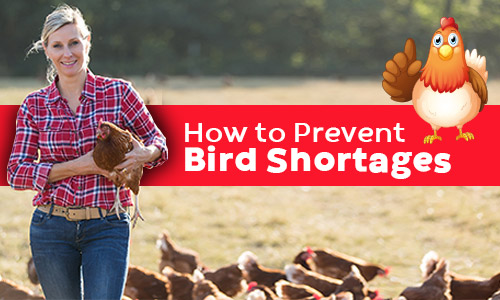Poultry processing plants in the U.S. seem to be in a pretty good spot: broiler prices are currently strong, thanks to lower feed prices and healthy demand. All a plant needs are enough birds to process.
Which is where getting in with local farmers, and encouraging a little entrepreneurial spirit, comes in.
It’s tough to satisfy consumers’ insatiable love of chicken
Even with all the hype about alternative proteins (including plant-based chicken), consumers (so far) still love the real thing.
And in case there’s any doubt, go into a Costco at 4pm on Friday, and try wrestling your way up to the rotisserie chicken counter as the bronzed birds come off the spit.
Speaking of Costco…
Big box stores like Costco need to process a lot of birds. So, when they decide to build a mega processing plant in Nebraska and they want to process 2 million birds a week — they have to tap into local sources for more birds.
Which might include farmers who have never worked with poultry, let alone set up a massive chicken barn. But for grain farmers in the middle of a drought or a market dive, the right poultry contract can be their golden ticket.
The key is to write farmer-friendly contracts
The new Nebraska processing plant is looking at creating contracts with some 125 farmers. Most will be new to poultry. And these entrepreneurial farmers will take on frightening loans — in attempt to keep the farm afloat.
And if the contracts have the farmers’ best interests in mind, as in…
- creating a contract equal to the length of the loan
- paying extra for quality birds
- not penalizing farmers if the chickens come in below average
… then farmers will be more likely to succeed at their new venture and keep birds rolling into the plant.
Getting in with the locals (early) to grow your poultry processing plant
Building a community network with local farmers and providing them with the resources they need to grow healthy poultry is the first step to getting a steady supply of chickens.
And setting everything up — contracts, construction, production — takes time. But, by building trust and providing support along the way, new poultry farmers will help keep everyone’s nest feathered.
